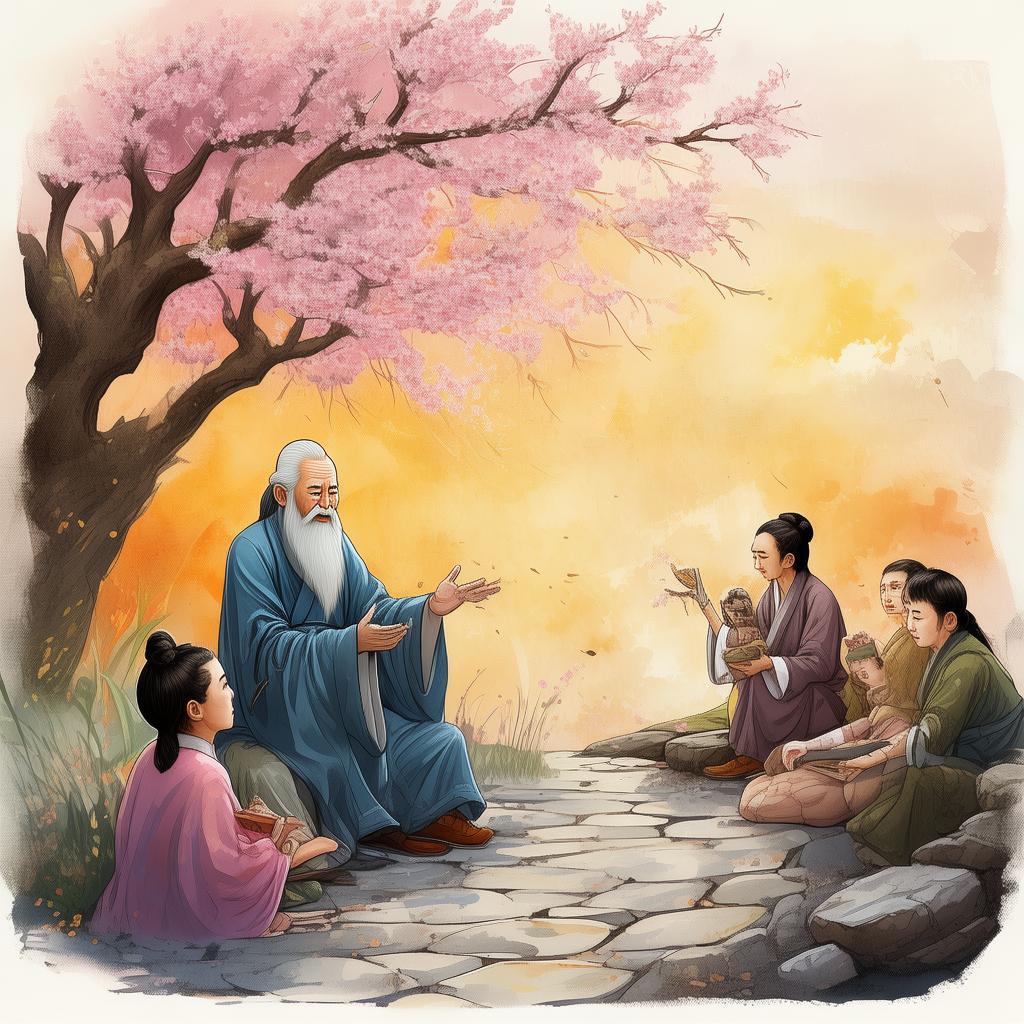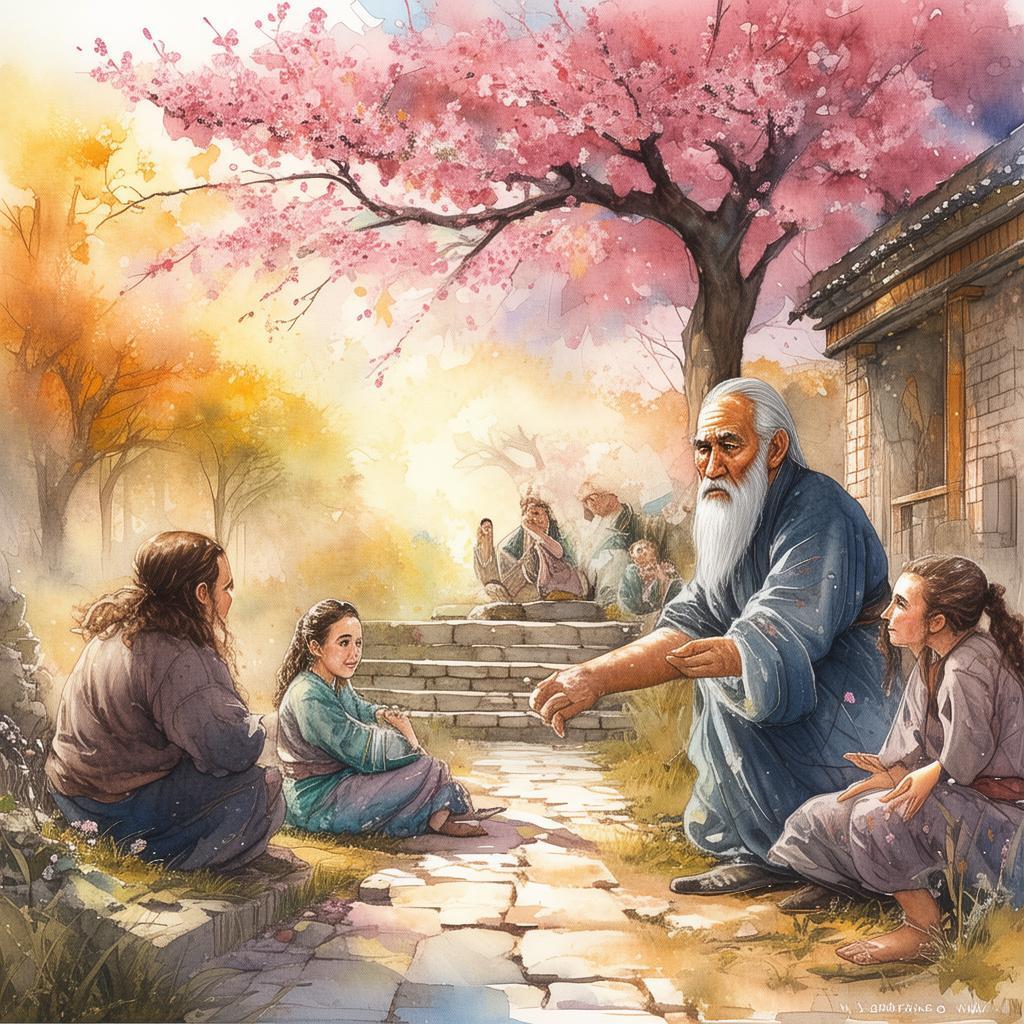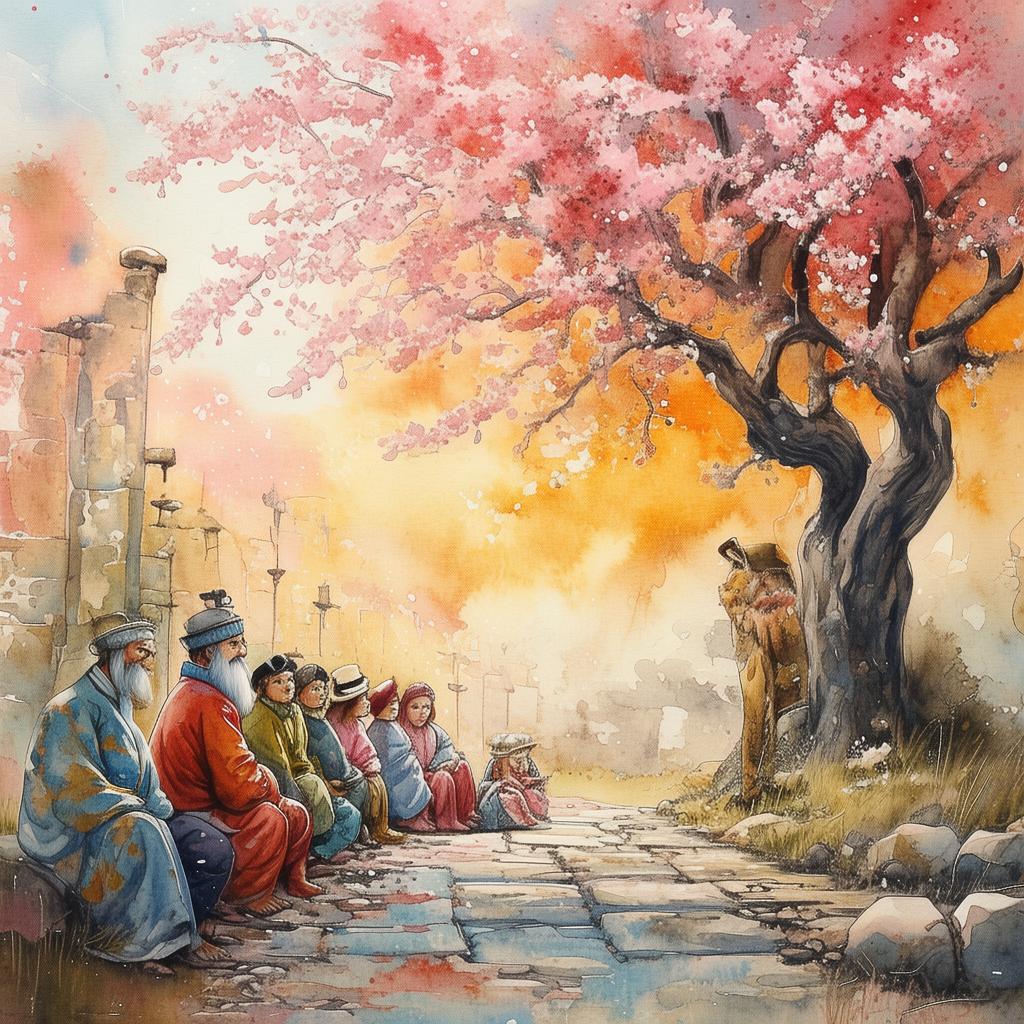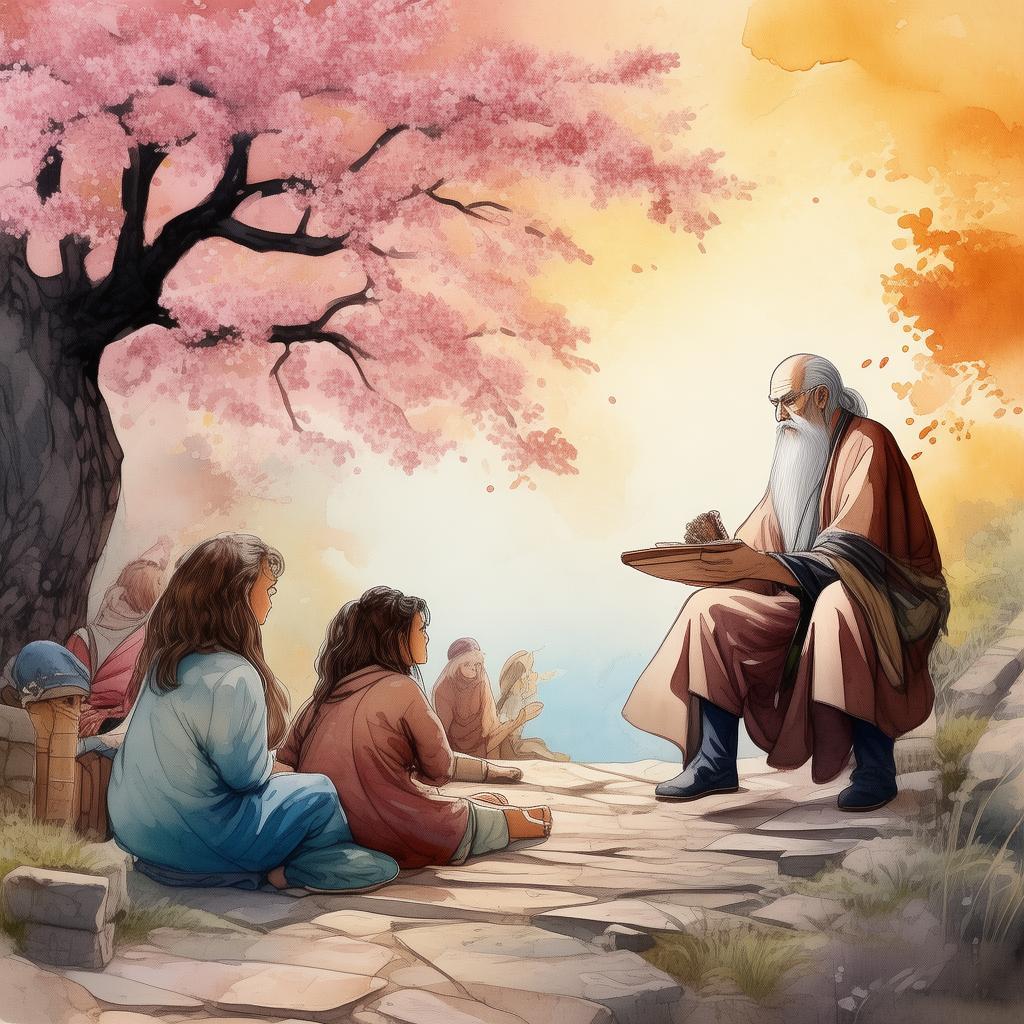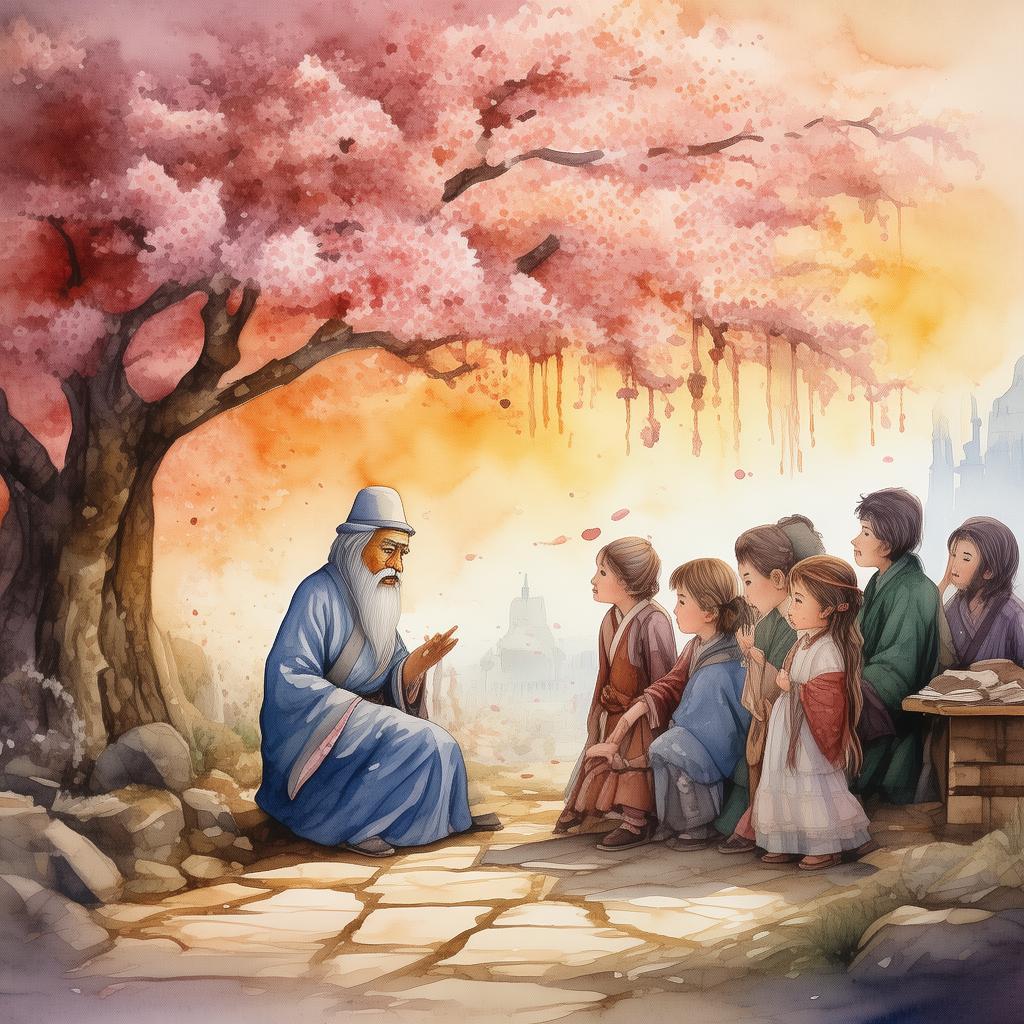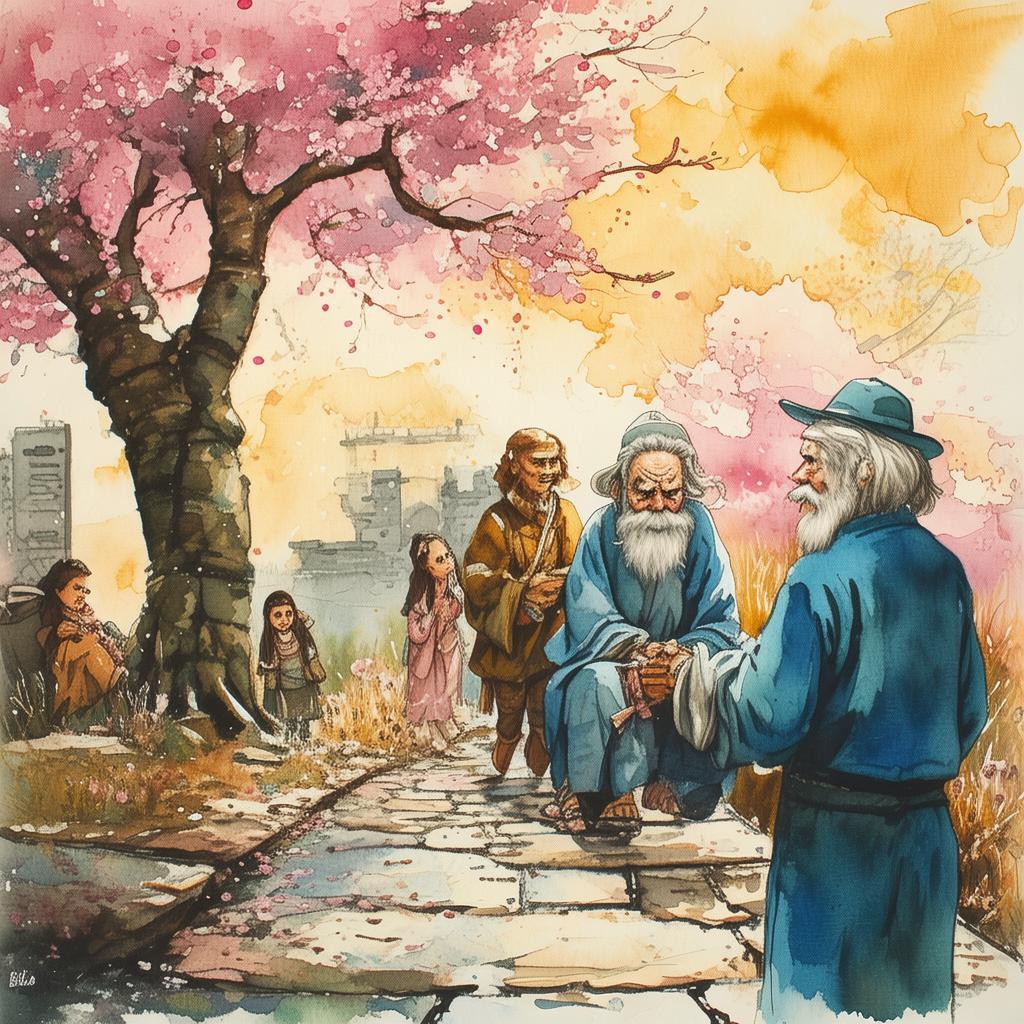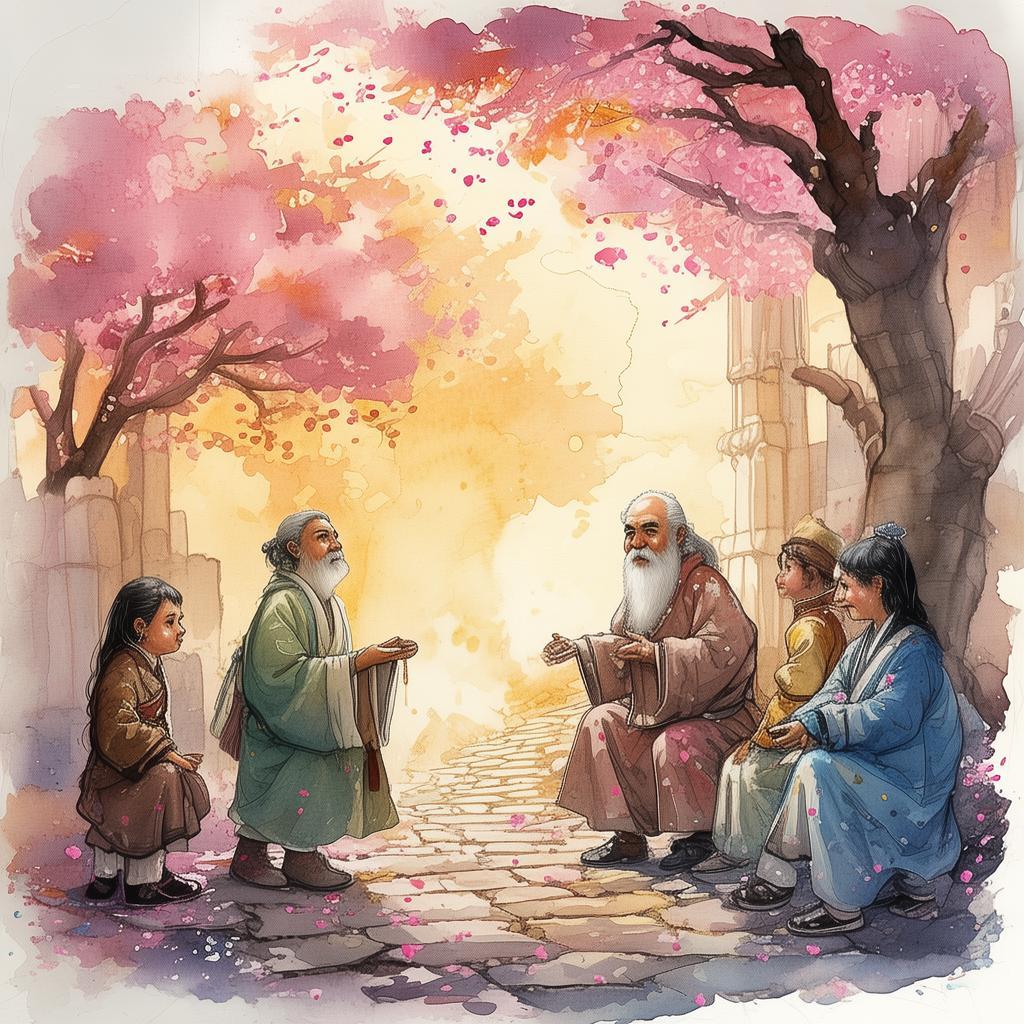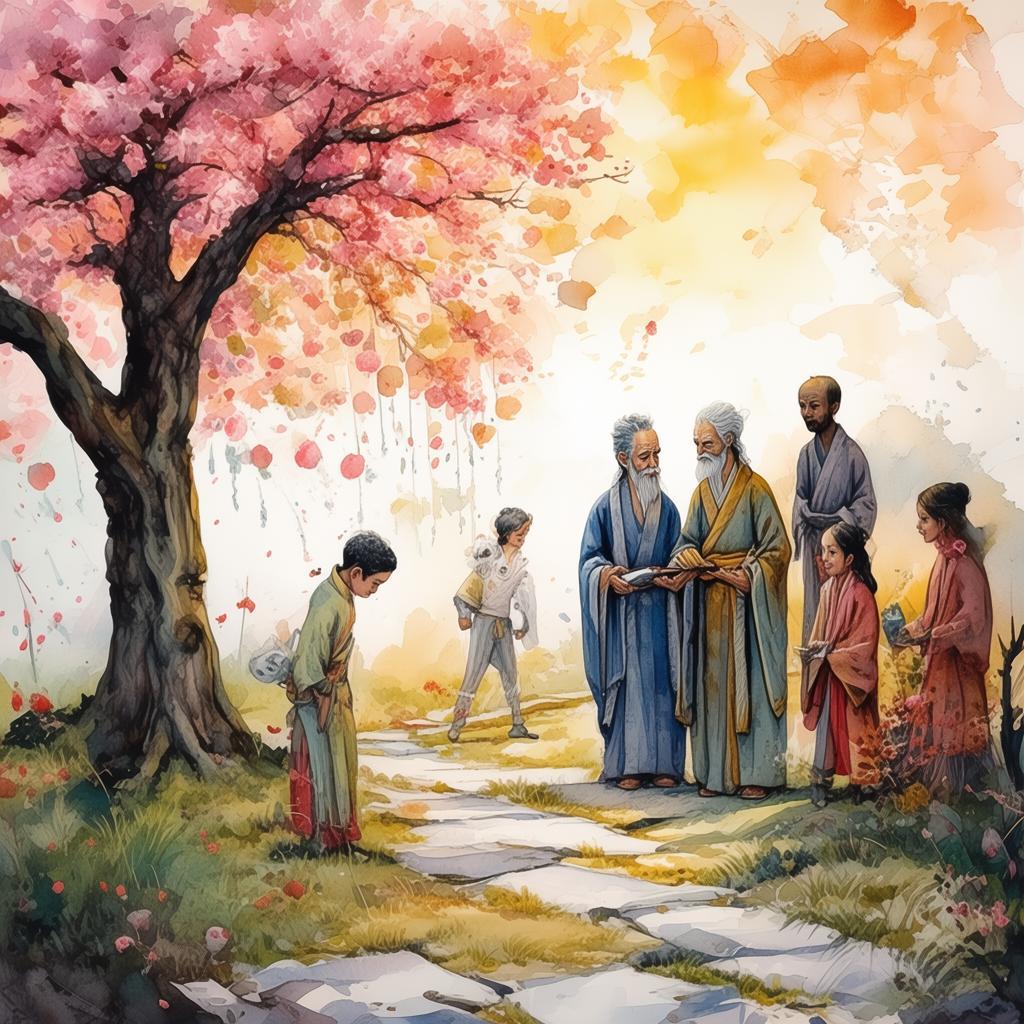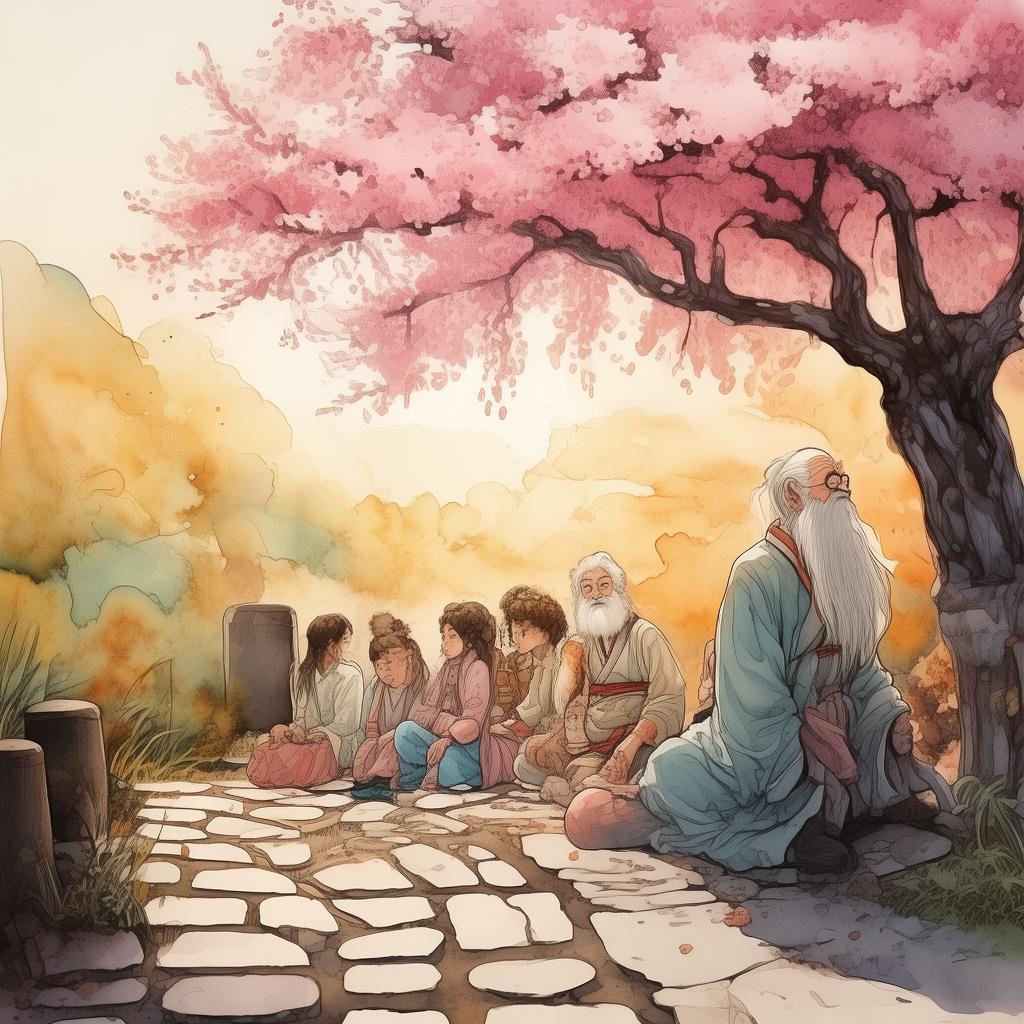Future King's Labyrinth of Prophecy
In the heart of an ancient empire, a young king named Xin stood before the grandest labyrinth known to man. The walls were woven from the roots of ancient trees, and the air was thick with the scent of blooming jasmine. This labyrinth was no ordinary maze; it was a place of prophecy, where the future of the empire and its ruler were etched in the very fabric of its walls.
Xin had been chosen by the ancient oracle to rule over the land, but he was not to take the throne without proving his worth. The oracle had foretold that he would face three long visions and two short ones, each representing a crucial moment in his reign. Only by understanding and making the right decisions could he ensure the prosperity and longevity of his kingdom.
The first long vision was a tapestry of flames, depicting a great conflagration that would threaten the empire. Xin, however, saw not just destruction, but also the seeds of a new beginning. He knew that he must not react with fear, but with foresight. He decreed that the empire would establish a fire brigade, ensuring that future blazes would be swiftly extinguished and that the knowledge of fire would be harnessed for warmth and light.
The second long vision was a serene lake, reflecting the tranquil face of a wise elder. This elder, the oracle had said, would guide Xin through the labyrinth and impart wisdom. Xin approached the elder with humility, asking how to best serve his people. The elder replied, "Rule with compassion, and let your actions speak louder than words."
The third long vision was a dark forest, where the king would encounter a myriad of choices. In this forest, Xin met a figure cloaked in shadows who offered him the promise of power, but at the cost of his soul. The king, however, knew that true power lay in the hearts of his people. He refused the offer and instead chose to empower his subjects, fostering a society where every individual had a voice and a role.
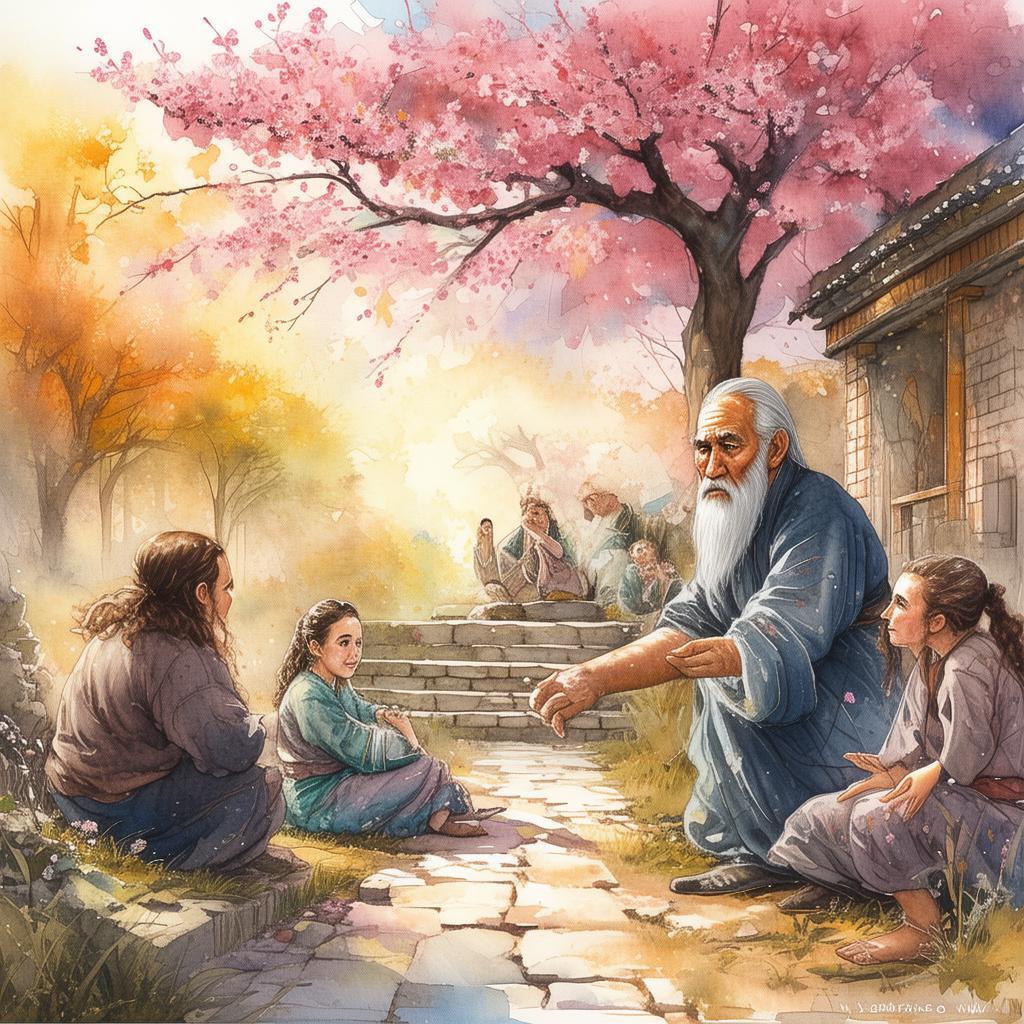
The two short visions came as sudden gusts of wind, each a whisper of the future. The first wind brought the news of a neighboring kingdom's impending attack. Xin, with the wisdom of the elder, called for a council of his wisest advisors and together they devised a strategy of defense and diplomacy. They forged alliances, built fortresses, and prepared for war, but also for peace.
The second wind brought a whisper of a great drought that would soon beset the land. Xin, remembering the first vision, called for the people to plant more trees and build aqueducts. He also decreed that the empire would establish a network of wells and rainmaking rituals, ensuring that the land would not wither away.
As Xin emerged from the labyrinth, he felt a profound sense of purpose. He had faced the three long visions and the two short ones, and each had tested his resolve. He had chosen the path of wisdom, compassion, and unity, and he knew that his kingdom would thrive under his rule.
The empire flourished under King Xin's leadership. He was known as the Future King, not just for his foresight, but for his unwavering commitment to the well-being of his people. The labyrinth had been a crucible of his character, and he had emerged stronger and more resolute than ever.
And so, the story of King Xin and his labyrinth of prophecy became a legend, a tale of a ruler who had the courage to face his destiny and the wisdom to shape his future. His reign was marked by prosperity, peace, and the enduring legacy of a king who had learned that true power lies in the hearts and minds of those he served.
✨ Original Statement ✨
All articles published on this website (including but not limited to text, images, videos, and other content) are original or authorized for reposting and are protected by relevant laws. Without the explicit written permission of this website, no individual or organization may copy, modify, repost, or use the content for commercial purposes.
If you need to quote or cooperate, please contact this site for authorization. We reserve the right to pursue legal responsibility for any unauthorized use.
Hereby declared.
